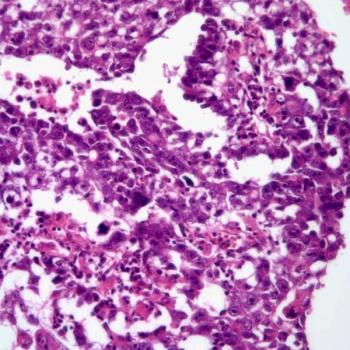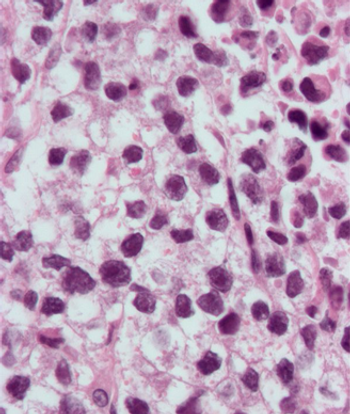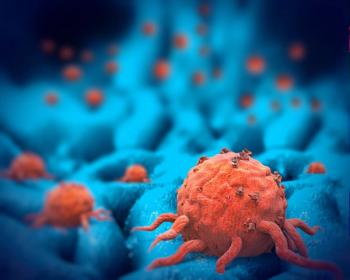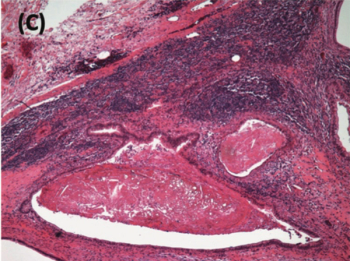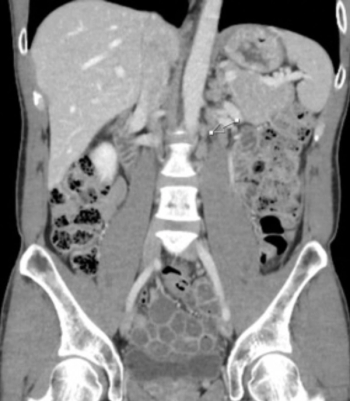
Oncology NEWS International
- Oncology NEWS International Vol 15 No 6
- Volume 15
- Issue 6
Testicular Ca Survivors at Increased Risk for CV Events
Men who survive testicular cancer are at increased risk for premature cardiovascular disease (CVD), either as a result of their treatment or because they tend to indulge in activities that are harmful to their health. Whatever the reason, these men may benefit from behavioral interventions aimed at helping them attenuate their risk, according to a study presented at the American Psychosocial Oncology Society (APOS) Third Annual Conference
AMELIA ISLAND, FloridaMen who survive testicular cancer are at increased risk for premature cardiovascular disease (CVD), either as a result of their treatment or because they tend to indulge in activities that are harmful to their health. Whatever the reason, these men may benefit from behavioral interventions aimed at helping them attenuate their risk, according to a study presented at the American Psychosocial Oncology Society (APOS) Third Annual Conference (abstract P12-4).
The relatively high rates of survival after testicular cancer being obtained today are due, in part, to cisplatin-based chemotherapy (CBCT), but cisplatin may be putting survivors at risk for negative, long-term events, said Linda A. Jacobs, PhD, RN, director of the Lance Armstrong Foundation (LAF) Living Well After Cancer Program and clinical assistant professor at the University of Pennsylvania Abramson Cancer Center. "We need to see whether we can influence some of the long-term outcomes of their treatment," she said. "Perhaps we can do this by focusing on certain behavioral factors, such as diet, exercise, and smoking, and by counseling them about monitoring their lipid profile, taking medications if necessary, and watching their weight."
Dr. Jacobs and her colleagues, including PI David Vaughn, MD, examined 50 testicular cancer survivors an average of 6 years after their diagnosis using measures of subclinical atherosclerosis and the Framingham Coronary Heart Disease Risk Prediction Score. Testosterone and luteinizing hormone (LH) and behaviorally related mediators of CV risk, such as tobacco use, body mass index (BMI), and lipid panel results, were also examined. Sixty percent of the survivors had been treated with CBCT; the rest were chemotherapy naïve. They ranged in age from 24 to 66 years and were predominantly European American.
Higher Framingham Scores
Overall, the men had relatively low testosterone levels and normal LH levels. However, "studies suggest that subclinical hypogonadism is not a factor in long-term CV toxicity in testicular cancer survivors treated with CBCT," Dr. Jacobs commented. The overall Framingham relative risk score was significantly greater among testicular cancer survivors, compared with the normal population, indicating an increased risk of CV events. There was a trend for higher Framingham risk scores in those who received CBCT vs the chemo-naïve patients, she said.
The investigators also used high-resolution brachial artery and carotid artery ultrasounds to examine vascular endothelial function. The carotid artery ultrasounds were all within normal limits. However, 86% of study subjects showed impairment in brachial artery flow-mediated vasodilation in the presence of normal nitroglycerin-mediated dilatation, suggesting abnormal endothelial function. Another marker of subclinical atherosclerosisC-reactive protein, a measure of inflammationwas abnormal in 21% of subjects, Dr. Jacobs said.
Health behaviors appeared to be compromised, with a "substantial minority" from both the CBCT and chemo-naïve groups reporting a history of cigarette smoking and current moderate use of alcohol. Survivors also had a BMI that was significantly elevated, compared with the upper range of normal weight.
Prior to the use of CBCT, premature CVD in testicular cancer patients was not considered an issue, because patients rarely lived long enough for CVD to emerge. Today, this relatively young population of survivors affords an excellent opportunity to study potential long-term CV effects of CBCT and possible ways to avoid them, she said. The study was funded in part by LAF and the National Cancer Institute.
Articles in this issue
over 19 years ago
Triple-Negative Cancers More Common in Young Black Ptsover 19 years ago
Artists Turn Flowers & Curves Into 'Forms' and 'Figures'over 19 years ago
Study to Examine Outcomes Disparities in Pediatric ALLover 19 years ago
Thalidomide Has 'Changed the Paradigm' in Myeloma Rxover 19 years ago
CA4P Gets Orphan Drug Statusover 19 years ago
A Novel Brings a Cancer Research Laboratory to Lifeover 19 years ago
NCCN Reveals New Venous Thromboembolism Guidelineover 19 years ago
Lapatinib New Option for Metastatic HER2+ Breast Caover 19 years ago
FDA Approves Dacogen for Treating All MDS Subtypesover 19 years ago
Noninvasive Ablation Relieves Chronic Chest Wall PainNewsletter
Stay up to date on recent advances in the multidisciplinary approach to cancer.


